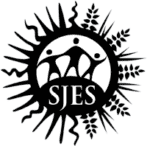This website uses cookies so that we can provide you with the best user experience possible. Cookie information is stored in your browser and performs functions such as recognising you when you return to our website and helping our team to understand which sections of the website you find most interesting and useful.
The Global Networks of Ignatian advocacy before the Covid 19 pandemic
How is the Covid 19 pandemic affecting forced migration, education, the environment and ecology, and the most vulnerable people and communities?
Convened by the Social Justice and Ecology Secretariat of the Society of Jesus, the leaders of the Global Ignatian Advocacy Networks (GIAN) on the Right to Education, Migration, Ecology and Justice in Mining met virtually and discussed, among other issues, the effects of the Covid 19 pandemic. These global advocacy networks were established following the General Congregation XXV, which emphasized the global challenges that demanded the Society of Jesus to ‘act as a universal body with a universal mission’.
The Society of Jesus has been working worldwide with forced migrants for many years. Their situation has been aggravated by Covid 19. The leader of the network, Javier Cortegoso, who coordinates the Jesuit Migrant Network in Latin America, denounces the situation in detention centres in various parts of the world, where overcrowding and deplorable conditions make it impossible to take measures to prevent contagion; the exploitation by many governments of the situation to continue the deportations of migrants without guarantees regarding their health; the abandonment of people in transit and at the border, the limitation of their access to health systems, and the increase in rejection and xenophobia towards migrants, who are too often falsely accused of spreading the virus. These situations and the recommendations are explained in the political statement of GIAN Migration. For the near future, one cause for concern is the economic precariousness of migrants due to confinement, since they are in the informal economy and must earn their daily wages. This is also seriously detrimental to many families and communities in many countries already in poverty, due to the sharp decline in remittances sent by migrants to their countries of origin.
Migrant children – as well as those living in poverty and exclusion, in remote rural areas, indigenous children, or those with special needs – suffer acutely from the consequences of school closures in 193 countries around the world. The coordinator of the International Education Network, Carlos Fritzen, who coordinates the International Federation of Fe y Alegría points out the violation of the right to education of these children and the situation of increasing vulnerability – “hunger” – of their families and communities, in most cases, daily workers. Although the organizations that make up the network have tried to adapt through virtual education and radio in the confinement stage, this alternative presents enormous challenges, such as the lack of teaching materials, or the digital gap, which leaves a large number of these children outside the system. He considers it relevant to “rethink” education and influence public policies so that governments adopt measures that protect the most vulnerable sectors and invest heavily in education.
One of the reasons why more and more migration will take place in the future is the deterioration of the environment. Pedro Walpole SJ has lived in the Philippines for more than 40 years and coordinates the network on Ecology, Ecojesuit. He insists vehemently that in the coming years, temperatures will reach maximums and that water scarcity will be an increasing problem. Also that the continuous violation of planetary limits, in particular the destruction of habitats and the loss of biodiversity by disastrous land use changes from the Amazon to Australia, has made COVID-19 and future pandemics inevitable. COVID-19 is now understood as part of a broader ecological crisis of land-use change and climate change that encompasses social, health, business and, increasingly, fiscal and political systems.
The Justice in Mining network brings together Jesuit Social Centers and Jesuit Organizations that work to accompany communities affected by mining in different regions of Latin America, Africa and Asia, addressing the public debate on the development model that often generates these impacts. Its coordinator, Guillermo Otano of ALBOAN, points out that the global scope of the COVID-19 pandemic has aggravated the situation of many of the communities that live in poverty, despite inhabiting territories rich in natural goods, and suffer from a lack of structural access to education, health and other basic needs. It denounces the reduction of civic space and freedoms, the danger of the confinement situation for human rights defenders, the impact of confinement measures on artisanal mining or the interruptions in mineral supply chains. In its position paper, it puts forward various measures and recommendations.
The GIAN networks actions will focus, among others, on denouncing rights violations, making proposals and accompanying the most vulnerable people and communities.





